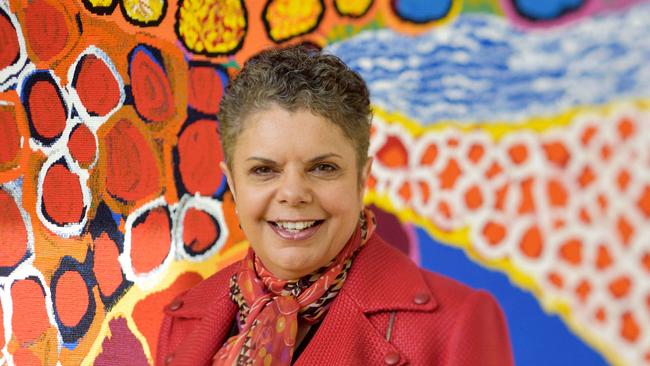Deborah Cheetham’s war
The celebrated soprano writes a requiem for peace.

About 300km west of Melbourne is a battleground haunted by violence and loss that few Australians know about. It is the site of the Eumeralla “resistance wars” fought near Lake Condah between the Gunditjmara people and squatting colonisers.
The guerrilla-style conflict lasted 23 years from 1840 to 1863 and many hundreds of indigenous lives were lost.
It is an overlooked part of our nation’s history about which acclaimed Yorta Yorta opera singer and composer Deborah Cheetham has written her latest work — Eumeralla, a War Requiem for Peace — which will have its large-scale premiere with the Melbourne Symphony Orchestra in June.
“My initial visit to Gunditjmara country in 2013 really left a deep impression on me,” Cheetham says.
“I’ve travelled many places in the world and across Australia where significant events have taken place but there is a presence in that land that really demands your attention. I wanted to write a work that would set people on a path towards understanding and help find lasting peace, and I think music is a very powerful means by which we could achieve that end.”
Cheetham’s 75-minute epic, modelled on Benjamin Britten’s famous War Requiem and the traditional Catholic requiem Mass, has 19 movements, each of them accompanied by a bespoke artwork designed by Gunditjmara artist Thomas Day.
The work is written entirely in the Gunditjmara language, translated by language custodian Vicki Couzens and linguist Kris Eira, and will be sung next month by soloists Linda Barcan, Don Bemrose and Cheetham herself, as well as the MSO Chorus and the Dhungala Children’s Choir.
“In providing the opportunity for a largely non-indigenous choir to learn a major choral work entirely in the ancient language of the Gunditjmara people, I hope Eumeralla will create a powerful way to engage and enlighten those unfamiliar with the history of the resistance wars,” Cheetham says.
The show’s written program will contain a full translation of the text, with surtitles projected above the stage while the work is being performed.
“There is such an appetite for a meaningful connection with indigenous culture in Australia at the moment and I’m really celebrating that,” Cheetham says.
“I’m seeing people no longer fearful of what they don’t know but getting on with the business of finding out.
“It is my hope that this requiem will help the spirits of those who fell to find a lasting peace and that we, their descendants, might find our way to a deeper understanding of the legacy of these battles. It will break the silence of so many decades and serve to amplify the importance of our nation’s shared history.
“One day I hope to walk on Gunditjmara country and feel no restless spirit — just the strength of 2000 generations of lives lived and culture sustained.”


